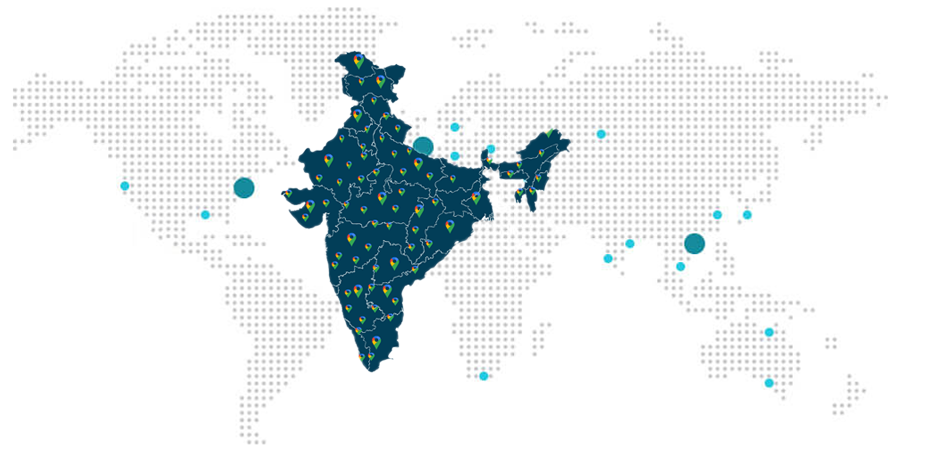Pan Card India
What is Permanent Account Number (PAN)?
PAN or Permanent Account Number is a medium of identifying the various taxpayers in the India. PAN is a unique alphanumeric number of identification which is assigned to citizens of India. The computer based PAN identification system provides unique number of identification to each tax paying entity in India. Via this process, all the information relating to tax about a person is recorded for a single PAN number and works as the main key for information storage.
This information is distributed across the whole country and therefore, no two people can have the similar PAN on tax paying entities. The idea for launching PAN is similar to the idea behind the Social Security Number (SSN) used in the USA. In the USA, SSN is a nine-digit unique number issued to all the citizens of USA, temporary as well as permanent.
The main motive for the creation of Social Security Number is to track people for the purpose of social security. But for taxation procedure also, it has worked as a primary number of identification. The PAN issued to an individual is valid for the entire lifetime of the PAN Card holder. There is no any effect of PAN on the change of address by the holder of the PAN card.
History of PAN in India
Before the introduction of PAN in India, taxpayers are assigned a number known as GIR number. It was a manual system of identifying the tax payers and only unique under a certain assessing officer or inside a ward. At the country level, this number is not unique. Indian government rolled out the PAN concept in 1972 and under section 139A of the Income Tax Act, 1961, it is made statutory.
The assessing officer will allot the GIR number to a tax payer and it contains the information of assessing officer. Another issue with the GIR number is that it not unique. It is unique only in a certain circle or ward and it will results into chances of miscalculations or errors during the assessment of tax.
In 1972, to overcome these issues pan card was introduced at the first time. In beginning it is a voluntarily procedure, but in 1976 it was made essential for all the tax paying individuals. In the beginning allotment of PAN numbers were manually made, and to avoid duplicity, every circle/ward get specific numbers set. Due to various issues, in the year 1995 this series was abandoned.
Despite of these modifications, the first PAN card avatar faced few difficulties as described below.
New Design for PAN Card
For those PAN cards which are issued after 1st January, 2017, the Income Tax Department has made a new format. The modifications done in the latest PAN card have been given below:
On the new PAN card, a QR (Quick Response) code has been printed. It will contain the card holder information. For data verification, this QR code can be used.
Some new sections like date of birth, father’s name of the card holder and name of the card holder have been added.
The location of the card holder signature and PAN have been modified.
PAN Card Types
The Income Tax Department has make it mandatory that all the entities who are paying the tax should possess and register a PAN card. This will apply to foreign firms, NGOs, partnership firms, companies, and individuals. Therefore, PAN cards are issued to companies and individuals.
PAN Card for Companies
The PAN card for a company is same as the individuals. But on the physical PAN card, there is no any photograph. there is no date of birth mentioned. The date of registration of the company is written on it.
PAN Card for Individuals
The PAN card for individuals is useful for linking and keeping the track of all those financial transactions which attracts the tax. The Income Tax Department calculates the total amount taxable on the basis of the data.
PAN Card for foreign citizens in India
All the foreign citizens who wants to carry out their business in India are needs to acquire the PAN. This is also applicable to the residents of India. Form 49AA is the application form for foreigners. All the entities which are eligible to receive PAN as citizens of India, are also eligible for receiving PAN as foreign citizens.
The Income Tax Department determine the taxable amount of the organisation or company which they have to pay via many transactions, all of them require the PAN card quoting.
Why is PAN important?
The PAN card is an essential document for a taxpayer. It is mandatory for receiving the tax refund and filing the Income Tax Returns. A PAN card also works as an identity proof and made essential for doing various personal and business transactions.
Read More: How to File Income Tax Return Online?
Essential Uses of PAN
Advantages of PAN Card
Who is allotted a Permanent Account Number?
PAN is allotted to the following categories of people.
According to the section 139A of the Income Tax Act, the following taxpaying entities are needed to have a PAN (Permanent Account Number).
What Happens If I Don’t Have a PAN Card?
Read More: How to File Income Tax Return with or without Form-16?
What Clients Say

Prakash Verma


Praveen Chauhan


Pradeep Kochhar

Blogs
In today's dynamic business landscape, navigating through various regulatory requirements and financial obligations can be... Read More
FinacBooks is a reliable platform that helps business owners in getting verified leads. It offers various services and solutions that can... Read More
Starting a new business in India requires several legal procedures, paperwork, and timely compliance with regulatory authorities. Company... Read More








